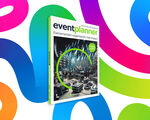How do you draw more visitors towards your event website? By scoring well in search engines, of course. But how do you do that? By using keywords and qualitative links to your event website. In part 1 of this article series we present 6 ways to use your keywords optimally. In part 2 of this series, we will give you 4 tips to link to your website and to make sure your content stays dynamic.
Keywords are… key. OK, but what do you do with them?
1. Determine the right keywords for your event website
Which keywords describe your event? Take for instance an exposition on home renovation. Renovation, exposition, homes, houses would be your keywords. For other suggestions, use the Google Keyword Planner. You can also find inspiration on websites of other events. And most of all: ask your customers or your target market. Which words instantly come into their minds if they think about your event? You optimize your texts even more by using a keyword group. For instance: 'home renovation exposition Antwerp'.
2. Use keywords again and again in your texts
Your visitors AND Google like a unique and masterfully written article on your event website. Including the right keywords. Search engines filter on keywords (search queries) in texts. Optimize your texts by having keywords return regularly in your texts, especially in the first paragraph. However, you have to make sure the text remains relevant. Too many keywords in your texts will lead to your texts being seen as spam, which drops your rank in the search engines.
3. Use keywords in titles and headings
Make sure that every page has a unique title with the keyword. Place that word in the front of the title. For example: 'Renovation exhibition for homes in Antwerp and region'. Apply the same principle to the headings of your paragraphs. The title tag of your page (visible in the tab of your browser) should also contain the right keyword.
5. Put the keywords in your meta-description
The meta-description is the piece of text you see in the search results of Google, right underneath the title and the URL of your website. Write a brief and intriguing call-to-action meta-description with the right keywords. Although search engines no longer take meta-descriptions into account for their rankings, this texts helps to convince visitors to click on your website.
6. Tag your images with relevant keywords
Also the smart use of images can optimize your website. 'Smuggle' your keywords into the 'alt tag' of the image. This will become visible if the website doesn't load properly or when the visitor holds his cursor over the image. Another thing you can do, is put the keywords in the file name of the image.








